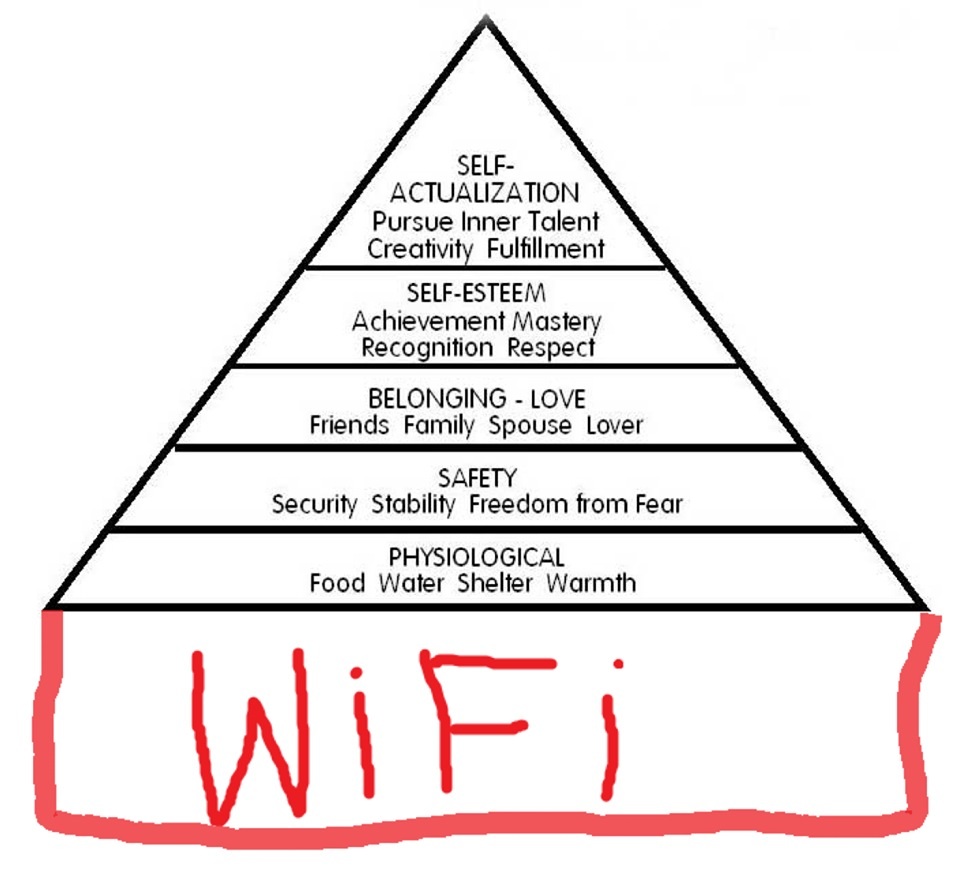
From page 76 of The Big Book of Unschooling:
Abraham Maslow studied mental health rather than mental illness, which was a departure from most other research in those days.
Maslow discovered that people who are afraid don't want to eat. Those who are hungry can't learn. He wrote about what he called a "hierarchy of needs." The applicability to learning is that one's physical needs must be met before other things can be considered.
In schools, they used it to get funding for breakfast programs, and to show more patience with sleeping in class than had been shown in decades previous to the 1960's and 70's. School reformers figured someone tired enough to sleep couldn't learn anyway, so there was no sense punishing them or even waking them up.
After physiological needs, Maslow says people need to feel safe and secure. Next comes the set of belonging, affection, and positive regard.
The application to unschooling is that if the child isn't hungry, tired, afraid or feeling unloved, there should be no problem with curiosity and the desire to experience other things.
Next up the pyramid of Maslow's theory is feeling unique and well-regarded. Any time one gets tired and hungry, the other "needs" are less important. Once they've built back up through the fulfillment of the more basic needs, then they can think about their place in the world, and what they might like to do with their thoughts, words, time and energy.
Humor, August 2013, from the UK: |